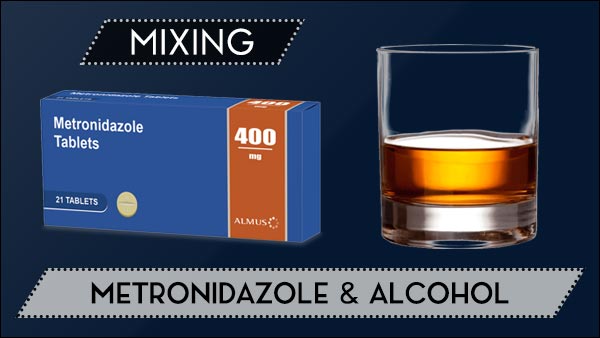
Many Medical practitioners always tell you, NEVER take #Flagyl & Alcohol together within 3 days (72 hours) apart but Never give you a concrete reason.
So it's my duty as an Pharmacist to disclose the Chemistry behind it.
(Retweet for awareness)
🧵 A Thread 👇 #ChiefRx
So it's my duty as an Pharmacist to disclose the Chemistry behind it.
(Retweet for awareness)
🧵 A Thread 👇 #ChiefRx

Flagyl (Metro) itself is an Alcohol with Nitrogens attached to it.
👇
2-(2-Methyl-5-nitro-1H-imidazol-1-yl) ETHANOL
The added moieties to the alcohol makes it effective on certain infections.
(Quick Remainder that Alcohol can be used as Sanitizer against microbes)
2/cont...
👇
2-(2-Methyl-5-nitro-1H-imidazol-1-yl) ETHANOL
The added moieties to the alcohol makes it effective on certain infections.
(Quick Remainder that Alcohol can be used as Sanitizer against microbes)
2/cont...
Drugs generally have side effects but those side effects become more pronounced when used with certain medications.
Now in the case of Flagyl, it can cause Disulfiram reactions especially when used together or few hours apart with Alcohol.
What's a Disulfiram reaction?
3/cont.
Now in the case of Flagyl, it can cause Disulfiram reactions especially when used together or few hours apart with Alcohol.
What's a Disulfiram reaction?
3/cont.
Disulfiram reactions mimic hangover-like symptoms such as nausea, vomiting, flushing, dizziness, throbbing headache, chest and abdominal discomfort.
Those symptoms you get from alcohol OVERDOSE when clubbing.
Why is this So?
4/cont...
Those symptoms you get from alcohol OVERDOSE when clubbing.
Why is this So?
4/cont...
Flagyl itself has an Alcohol functional group hence, it possess some alcoholic symptoms whenever you are combined with another (Ethanol).
What's Disulfiram?
Disulfiram is a drug used in treatment of chronic alcoholism by producing an acute sensitivity to ethanol.
5/cont...
What's Disulfiram?
Disulfiram is a drug used in treatment of chronic alcoholism by producing an acute sensitivity to ethanol.
5/cont...
which results in a highly unpleasant reaction when the patient under treatment ingests even small amounts of alcohol.
These Unpleasant reactions include headache, nausea, vomiting, weakness, blurred vision, confusion & sweating.
With such reactions, they tends to stop
6/cont..
These Unpleasant reactions include headache, nausea, vomiting, weakness, blurred vision, confusion & sweating.
With such reactions, they tends to stop
6/cont..
Flagyl blocks the effects of this Alcohol dehydrogenase (the enzymes that metabolises Alcohol).
As a result, a person on Flagyl cannot fully digest alcohol & drinking can cause the toxic acetaldehyde to build up in the bloodstream.
Bcos of this, people who drink alcohol
7/cont.
As a result, a person on Flagyl cannot fully digest alcohol & drinking can cause the toxic acetaldehyde to build up in the bloodstream.
Bcos of this, people who drink alcohol
7/cont.
while taking Flagyl may experience a disulfiram-like reaction.
So please, NEVER take Flagyl & Alcohol together within 3 days.
I repeat, NEVER take Flagyl & Alcohol together within 3 days.
I'm still begging you all, NEVER take Flagyl & Alcohol together within 3 days.
8/🔚
So please, NEVER take Flagyl & Alcohol together within 3 days.
I repeat, NEVER take Flagyl & Alcohol together within 3 days.
I'm still begging you all, NEVER take Flagyl & Alcohol together within 3 days.
8/🔚
• • •
Missing some Tweet in this thread? You can try to
force a refresh




